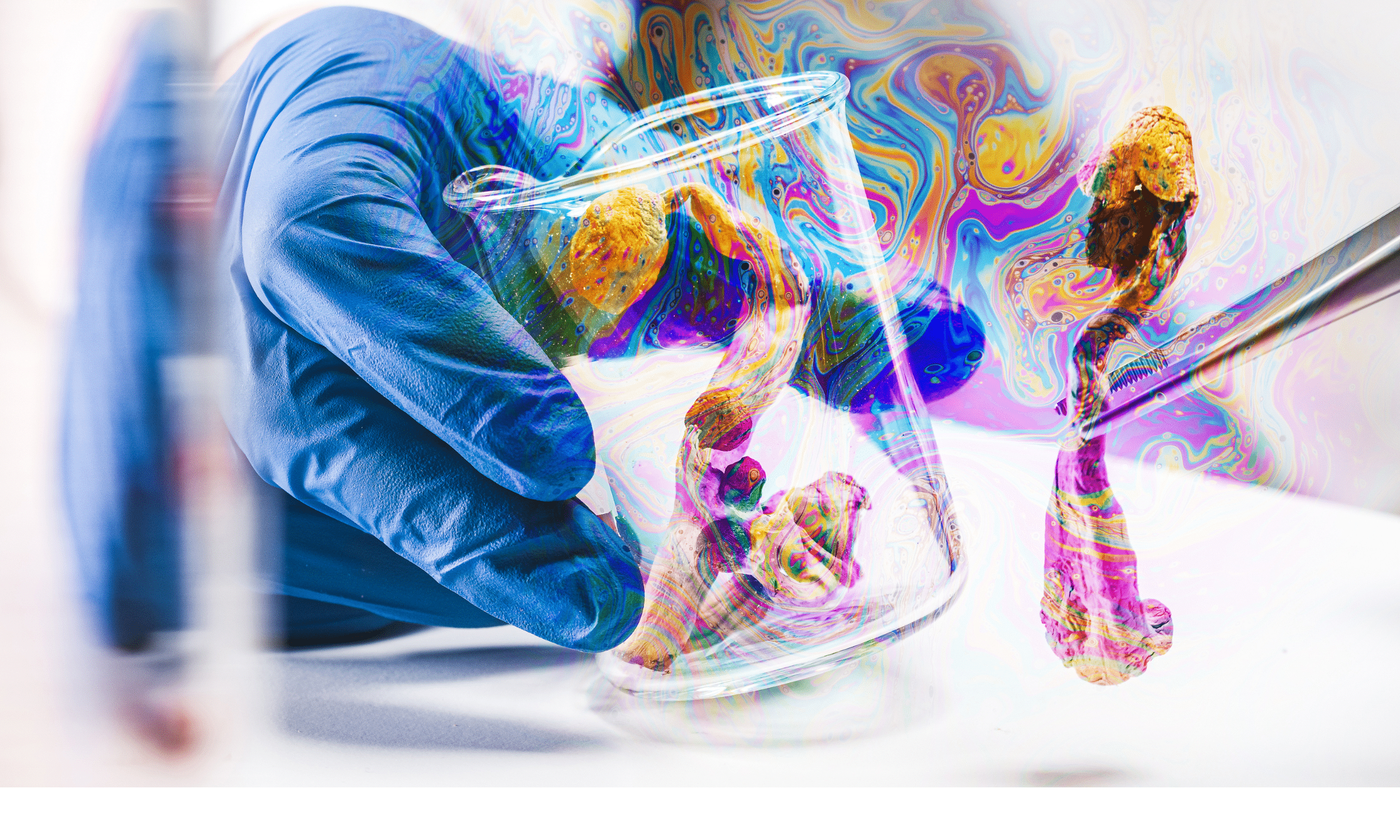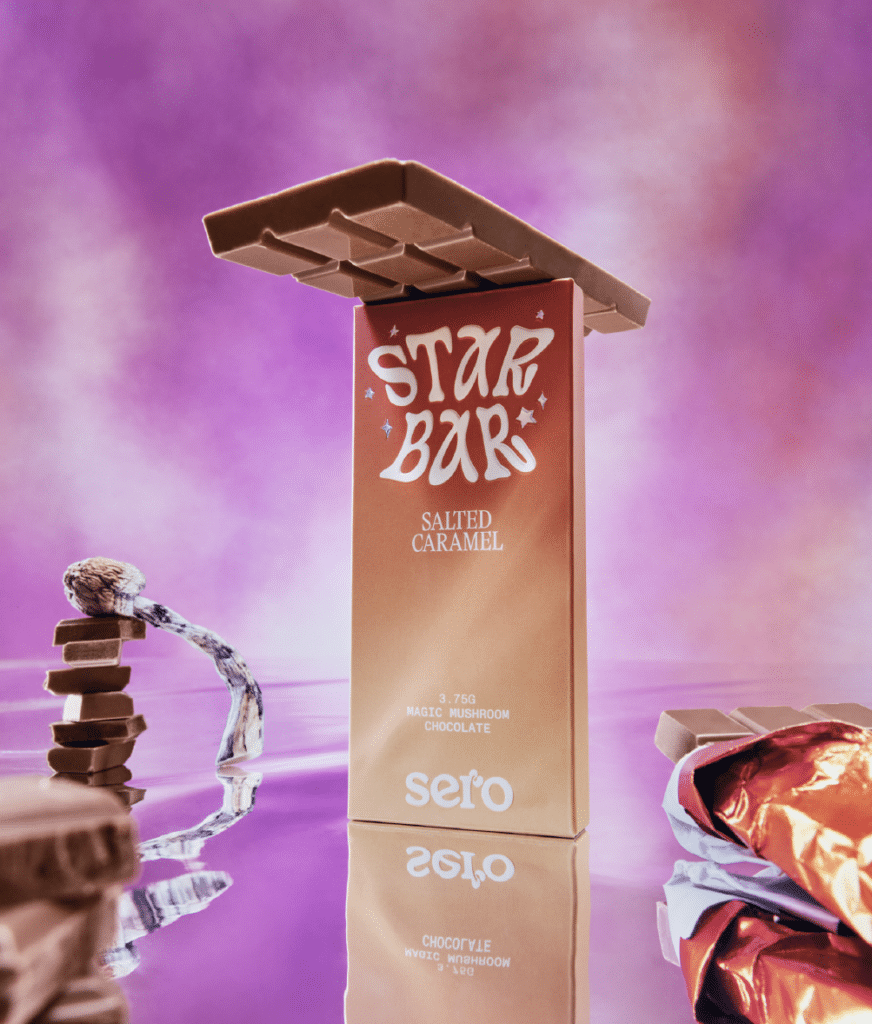Feel Lifted
Looking to microdose and macrodose to improve your mood? Get started with this bundle. .
Free shipping on all orders over $150
Free shipping on all orders over $150
Free shipping on all orders over $150
Free shipping on all orders over $150
Free shipping on all orders over $150
Free shipping on all orders over $150
Free shipping on all orders over $150
Free shipping on all orders over $150
The Power of Psilocybin to Treat Chronic Pain

Psilocybin is making waves in treating ADHD, depression, anxiety, and post traumatic stress disorder. But did you know it could also be the key to unlocking relief from chronic pain? A debilitating condition affecting over 1.5 billion people worldwide, chronic pain is a complex beast that doctors have barely begun to understand.
Traditional treatments like opioids are more like (sometimes dangerous) band-aids, offering short-term relief but barely scratching the surface of the real issue. Researchers are on the hunt for something better. Something more effective. And that’s where psilocybin steps in.
Powerful enough to tackle the root cause, not just the symptoms, psychedelics could revolutionize the way we treat chronic pain. The evidence? It’s everywhere – from anecdotal success stories to burgeoning research. Buckle in for the full story on psilocybin for chronic pain including:
What is chronic pain?
How psilocybin works to treat chronic pain
The research on psilocybin for chronic pain
Microdose vs macrodose for chronic pain
Psilocybin for chronic pain at Sero
Chronic pain is characterized as any ongoing pain that lasts for longer than 3 months. It can be intermittent or continuous and can continue long after the illness or injury that started it has healed.
Biological – physical factors like illness, injury, genetics, pain tolerance
Psychological – anxiety, fear, guilt, anger, depression, rumination, and catastrophizing (thinking the pain will never end and that it’s dangerous/means something is seriously wrong)
Social – how others respond to the pain and how it affects their work and social dynamics
Spiritual – deeper concepts like meaning, purpose, hope, personal growth, and values.
Chronic pain simply refers to the length of time pain persists but can include countless different types of pain like back pain, knee pain, cancer pain, fibromyalgia, headache disorders, neuropathic pain, and many others.
It’s believed that most forms of chronic pain originate in the brain. Basically, the brain is playing a pain loop on repeat despite the original injury/illness being fully healed. It creates a sensitized central nervous system, with pain-creating neurons firing long after an injury is healed. It’s like the brain is “stuck” in the pain gear, even though there’s no physical reason for it.
This is where psilocybin comes in. Psilocybin actually reshapes pathways in the brain, which researchers hope can treat the cause of chronic pain rather than just the pain itself. According to Neuroanesthesiologist and Neuroscientist, Joseph Cichon, “what makes psychedelics so exciting is that may be the sort of sledgehammer or tool that the brain needs to be shaken up so it can land back down into a normal state.”
https://heysero.co/wp-content/uploads/2024/04/psilocybin-and-neuroplasticity-1.mp4
Ok, we’re about to get real science-y to explain how psilocybin works in the brain of a chronic pain patient. In the epicentre of our brain functions, there’s a network called the Default Mode Network (DMN). Picture it as a control centre necessary for normal, everyday consciousness. Overactivity of the DMN is associated with many mental health disorders and chronic pain, it turns out. In fact, it seems the worse the DMN mess, the more severe the pain.
Enter psilocybin. It’s like a brain mechanic, fixing the DMN’s faulty wiring. But how does it do it? It starts by activating the 5-HT2A receptor, which is like the brain’s broadband, changing the way signals are sent. This action disrupts the troubled connections in the DMN, paving the way for fresh, healthier links to form.
Research shows that these positive changes, spurred by a boost in neuroplasticity, remain long after the psilocybin journey.
While psilocybin greatly enhances neuroplasticity and literally rewires our brain – we can also rewire our brain manually just by changing our thoughts. One clinical trial on chronic pain investigated the use of a treatment called “pain reprocessing therapy” which teaches patients to see pain as a “neutral sensation” rather than a threat. With this treatment alone, 66% of the patients were able to rewire the pain-creating neural pathways themselves, leaving the trial nearly or fully pain-free.
Psilocybin is immensely helpful alongside this kind of manual brain rewiring to more easily facilitate these changes (and make sure they last).
A neuroscience pain lab at Northwestern University found that when acute pain turns into chronic pain, it moves to different regions of the brain – the regions involved with memory, learning, and controlling emotions. Psilocybin inhibits that emotional section of the brain (the anterior insula cortex) and scientists believe this explains part of psilocybin’s power to treat chronic pain.
Many researchers are finding that the key to healing many types of chronic pain are in rewiring our thoughts and emotions about the pain. When we understand the pain is not dangerous and learn to reduce stress and fear related to the pain, the brain understands there is no threat, and that it no longer needs to create these unnecessary pain signals.
Ever wonder how acute pain becomes chronic? It’s often down to negative thought patterns like catastrophizing. These negative thoughts increase activity in the brain areas that control both attention to pain and anticipation of pain. Science shows that thoughts can literally create pain and make it stick around.
But the good news: just as your thoughts got you into this mess, they can get you out. Many chronic pain patients are eliminating pain by overriding the negative programming and facing their pain-related fears – ie exercising despite the fear that movement will exacerbate the pain. Once they’ve taken over and repeatedly shown the brain there’s no physical threat, it can turn off the pain signals.
So where does psilocybin come in? Through increased neuroplasticity, it becomes much easier to alter the thought processes, neural pathways, and habits keeping us in chronic pain.

Psychedelic drugs like psilocybin work on 5-HT2A serotonin receptors (there’s a reason we’re called Sero, ya’ll). Research is connecting those same 5-HT receptors with the development of chronic pain. Why? These receptors help carry pain information from the brain to the spinal cord.
So, while researchers are still trying to figure out exactly why psilocybin works so well with chronic pain, they believe their effects on these receptors could play a part. What’s more, the mood-lifting capacity of psilocybin is gaining attention, especially considering the link between chronic pain and depression.
Researchers are finding that chronic pain is multifaceted – it’s not just the heightened pain senses, but anxiety, depression, fear of movement/activity, self-doubt, and a feeling of helplessness that come together to make pain chronic. This is why psilocybin is so effective – it not only repairs and rewires dysregulated areas of the brain, but also boosts neuroplasticity, helping us create new ways of thinking, new habits, and new beliefs about ourselves. These healthy habits replace the fear, self-doubt, and pain anticipation that turned acute pain into a chronic condition.
So we know psilocybin activates 5-HT2A receptors. This then triggers a sequence of events that inhibit the tumour necrosis factor (TNF), an important agent in reducing inflammation. Given the established link between TNF and neuropathic pain conditions, it makes sense that dialing back this inflammation regulator would help alleviate chronic pain. Researchers think this could be a key reason behind psilocybin’s potent anti-inflammatory effects.
It turns out everyone’s favorite feel-good hormone is also involved in pain perception. And scientists believe psilocybin influence dopamine-related processes through their activation of 5-HT2A receptors we mentioned earlier. Researchers believe this could help explain psilocybin’s ability to so effectively treat pain.
Science can only explain so much and then comes the spiritual. If you’re an experienced psychonaut, you know the life-changing power of the psychedelic experience – the insights received, the deep feeling of connectedness, purpose, calm, and joy, and so much more. These experiences can forever alter the way you see yourself and the world, change long-held limiting beliefs you had about yourself and the world, and remove the negative perceptions and feelings lurking behind depression, anxiety, and other mental health conditions.
A psychedelic experience can bring you into the now – gifting you a deep gratitude for life, and taking your focus off the trauma of the past or the worries of the future. These effects remain long after the initial psychedelic experience.
Many scientists agree that the therapeutic effects of these altered states of consciousness can help patients shift their perception of pain. Researchers are investigating whether the altered consciousness is needed for the pain-relieving properties – early research is split.

Research published in Neuropharmacology reveals that even a single, low dose of psilocybin can treat migraines and cluster headaches, reducing their frequency and intensity. Remarkably, participants in one study reported that psilocybin and LSD put an end to their cluster headache attacks entirely. The research verdict? These two substances are outperforming standard drugs in battling cluster headaches.
Another study showed significant reductions in both frequency and intensity of migraines (and full remission in many cases) using psilocybin or LSD. Scientists concluded LSD and psilocybin effective as both acute and preventative treatments to cure or alleviate migraine, with minimal side effects.
Interestingly, another study found the mystical experiences of psychedelics may also contribute to their pain-relieving power. These powerful beyond-the-mind experiences can reduce rumination and catastrophizing associated with chronic pain.
Other studies focused on depression noted “robust and persistent” improvements in many measures of chronic pain along with significant improvements and often complete recovery in depression symptoms.
Studies on psychedelics and cancer have been just as impressive. Patients achieved robust pain relief, significant improvements in anxiety, insomnia, depression, feelings of isolation, improved quality of life, and changes in attitude towards death.
Most excitingly, some studies have found that psychedelics can rival opioids in their effectiveness as pain relievers, except minus the harsh side effects and addictive properties. With pain-relieving effects lasting for weeks, or even months, psilocybin is an exciting development in the world of pain medicine.
Psilocybin has been used to treat migraines, cluster headaches, cancer-related pain, palliative-related pain, phantom limb pain, manage chronic neuropathic pain, and more types of chronic pain that haven’t been officially studied.
The question gripping researchers: do you need a peak psychedelic experience to ease chronic pain, or would microdosing do the trick? So far, the research is split. Some scientists believe microdosing could be just as potent, especially for inflammation-induced pain, since the lower doses still work on 5-HT2A sites to decrease inflammation. Take migraine sufferers for instance – microdosing of psilocybin or LSD led to fewer headaches or even total relief.
Another psychedelic study was done with terminal cancer patients with depression – the participants saw improved pain, mood, anxiety, and reduced fear of death. Except the researchers in this study emphasized the significance of hitting the psychedelic peak to reap the full therapeutic benefits.
So, the necessity of the ‘full journey’ might depend on the type of chronic pain and the individual’s mental and emotional state. More research is being done to confirm this. But our motto is simple: start low and go slow. Microdosing has perks for everyone and if it’s calling to you, a full psilocybin journey can be life-changing – chronic pain or not.
There are certain medical conditions and medications which are contraindications to psilocybin. Read this article for more info.
Many members of our community have found relief from microdosing psilocybin. Lite Brite is our most popular microdose blend, which is formulated with psilocybin and natural anxiolytics to boost mood and reduce anxiety alongside all that neural rewiring.
Read our in-depth guide to microdosing for more on picking your dosage amount and schedule, setting intentions, and getting the most out of your microdose experience.
If you’re ready to undertake a powerful ceremony at a higher dose, consider our ceremonial-grade Cacao Star Bar. Hand-crafted in Canada with sustainably grown golden teacher magic mushrooms and cacao sourced from an eco-forest in Guatemala. One square equals a microdose and the entire bar will take you on a full psychedelic journey.
Only undertake a full journey under the supervision of an experienced facilitator or psychedelic therapist and read our Guide to Macrodosing for more info on the preparation, journey, and post-ceremony integration.

Have questions about psilocybin? Reach out to us anytime to chat with a Sero team member, experienced psychonaut, or trained psychedelic therapist. We are always here to help!